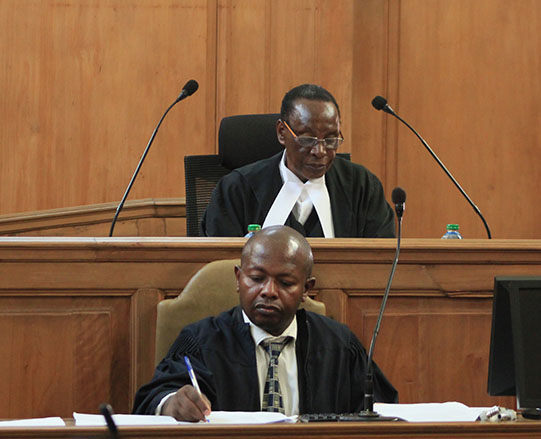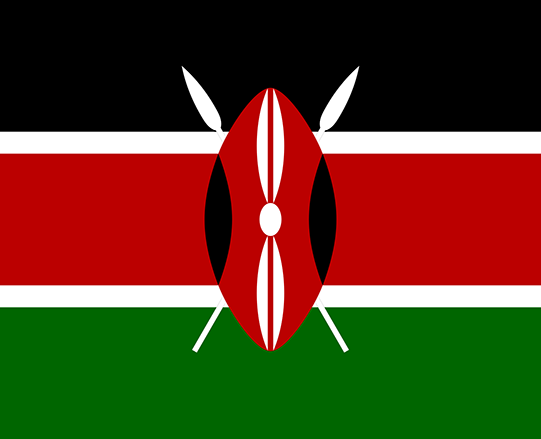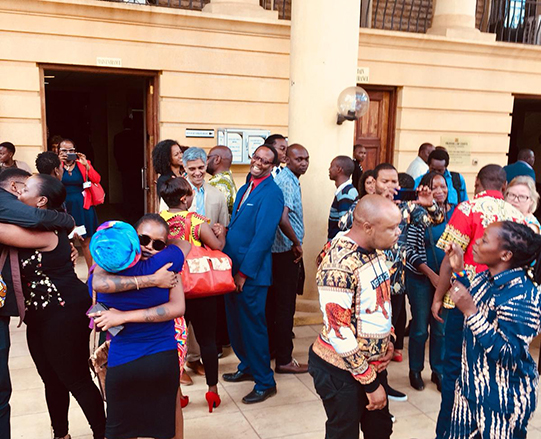The Kenyan Court of Appeal has today ruled that the National Gay and Lesbian Human Rights Commission should be allowed to officially register as a national NGO.
Téa Braun, Director of the Human Dignity Trust, applauded the decision, and said:
‘The Court of Appeal’s ruling today affirms every Kenyan’s constitutional right to freedom of association, regardless of personal characteristics like sexual orientation. In any open and democratic society equal rights must prevail. People who seek to meet and organise to safeguard respect for human rights must be allowed to do so with the full protection of the law.’
Of the five-judge bench, three judges dismissed the appeal by the NGO Coordination Board, which sought to deny lesbian, gay, bisexual and transgender (LGBT) Kenyans the right to associate.
Speaking after the ruling, Njeri Gateru, Executive Director of the National Gay and Lesbian Human Rights Commission (NGLHRC), said:
‘The judges have chosen to stand by the constitution that allows for like-minded persons to meet and organise, formally. The ruling only brings inclusivity and sets a positive precedent for other rights organisations, in Kenya and around Africa.’
Eric Gitari, then Executive Director of NGLHRC, brought a successful challenge before the Kenya High Court in 2015 after the NGO Coordination Board refused to register his organisation on the basis that it was for gay and lesbian people.
The Court of Appeal’s ruling today affirms every Kenyan’s constitutional right to freedom of association, regardless of personal characteristics like sexual orientation.
Sections 162, 163 and 165 of the Kenyan Penal Code, which were introduced into the lawbooks by British colonisers over 100 years ago, target LGBT people, including by making it a crime punishable by up to 14 years in prison to ‘have carnal knowledge against the order of nature.’
The Court ruled that under Articles 27 and 36 of the Constitution of Kenya, every person has the right to freedom of association irrespective of their sexual orientation.
The Attorney General, who was named in the original 2013 Petition alongside the NGO Coordination Board, accepted the High Court ruling, but in July 2016, the Court of Appeal heard a challenge to the judgment by the NGO Board.
In 2014, the African Commission on Human and Peoples’ Rights passed Resolution 275, urging all African Union member states to create favourable conditions for human rights defenders working on LGBT issues and to help prevent the high levels of violence and discrimination such people experience. Sadly, many African countries, including Uganda, Nigeria and Tanzania, refuse to register LGBT organisations due to discriminatory penal codes and other oppressive laws.
ENDS
Notes to editors
- The Human Dignity Trust works with LGBT activists around the world to defend human rights in countries where private consensual sexual activity between adults of the same sex is criminalised. We link the international legal community with local organisations who are challenging laws that persecute people on the basis of their sexual orientation and/or gender identity.
For more information contact:
Emma Eastwood, Head of Strategic Communications, HDT
T: +44 (0)20 7419 3770 / E: emmaeastwood@humandignitytrust.org / Twitter: @HumanDignityT
Téa Braun, Director, HDT
T: +44 (0)20 7419 3773 / E: teabraun@humandignitytrust.org / Twitter: @teabraun



